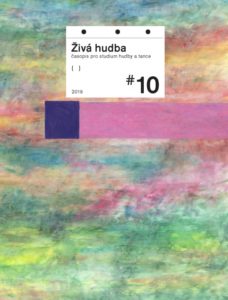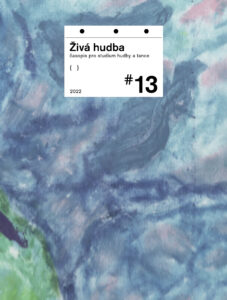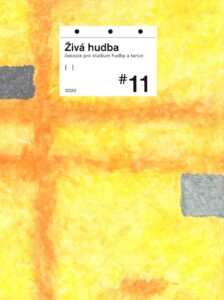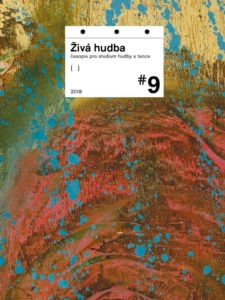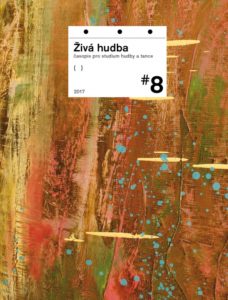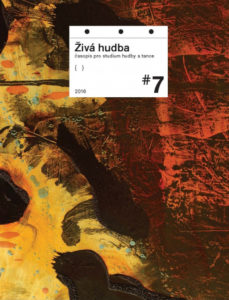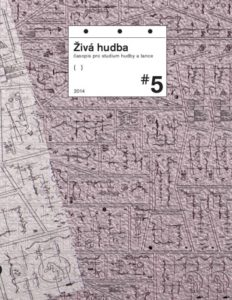Abstrakt For researchers of Greek traditional music, 1988 is regarded as a landmark year, as it coincides with the founding of the first public Music Secondary School in Greece. One of the innovations of these schools was the inclusion of Greek traditional instruments in their curricula, for the first time in a state educational institution. By September 2019, there were 47 such schools operating in most major Greek cities. During the first 30 years of their existence, Music Secondary Schools seem to have made an important contribution to the field of traditional music, as reflected by the significant number of graduates who are professionally active today – either as performers or teachers. It should be mentioned that the first teachers of traditional instruments in these schools were professionally active folk musicians, who had “learned” their art orally. Interestingly, as most of them had no previous formal training in music or pedagogy, they were given the title empirotechnis (εμπειροτέχνης), which can be translated as “craftsperson by experience”. A second attempt at the “institutionalization” of traditional music in Greece took place in 2000, when two university schools of music started offering bachelor’s degrees with this specialization, meeting a workforce need for “formally trained” teachers of traditional instruments. This paper explores the shift from informal to formal music teaching and learning of traditional Greek instruments by examining related studies over the last 30 years, with a special focus on methods of transmission.


Antonis Ververis:
Traditional instruments in public Music Secondary Schools and Universities of Greece: Methods of transmission and teaching
Stati a studie / Živá hudba 2019/10 / Publikováno 8. 4. 2020
Abstrakt:
For researchers of Greek traditional music, 1988 is regarded as a landmark year, as it coincides with the founding of the first public Music Secondary School in Greece. One of the innovations of these schools was the inclusion of Greek traditional instruments in their curricula, for the first time in a state educational institution. By September 2019, there were 47 such schools operating in most major Greek cities. During the first 30 years of their existence, Music Secondary Schools seem to have made an important contribution to the field of traditional music, as reflected by the significant number of graduates who are professionally active today – either as performers or teachers. It should be mentioned that the first teachers of traditional instruments in these schools were professionally active folk musicians, who had “learned” their art orally. Interestingly, as most of them had no previous formal training in music or pedagogy, they were given the title empirotechnis (εμπειροτέχνης), which can be translated as “craftsperson by experience”. A second attempt at the “institutionalization” of traditional music in Greece took place in 2000, when two university schools of music started offering bachelor’s degrees with this specialization, meeting a workforce need for “formally trained” teachers of traditional instruments. This paper explores the shift from informal to formal music teaching and learning of traditional Greek instruments by examining related studies over the last 30 years, with a special focus on methods of transmission.
Citace:
Antonis Ververis. Traditional instruments in public Music Secondary Schools and Universities of Greece: Methods of transmission and teaching. Živá hudba 2019/10. On-line <https://ziva-hudba.info/traditional-instruments-in-public-music-secondary-schools-and-universities-of-greece-methods-of-transmission-and-teaching-2/> [23. 4. 2024].
Kopírovat
Vyšlo v časopise
Živá hudba 2019/10
Rubrika: Stati a studie
Publikováno: 8. 4. 2020
PDF: download
Klíčová slova:
formal music learning, historie, Interpretace, literacy, orality, pedagogika, traditional music
Články autora:
Antonis Ververis (1)
Aktuální čísla časopisu můžete koupit v Nakladatelství AMU.
Citace:
Antonis Ververis. Traditional instruments in public Music Secondary Schools and Universities of Greece: Methods of transmission and teaching. Živá hudba 2019/10. On-line <https://ziva-hudba.info/traditional-instruments-in-public-music-secondary-schools-and-universities-of-greece-methods-of-transmission-and-teaching-2/> [23. 4. 2024].
Kopírovat
Další články
-
Monika Štúrová:
Cesta badatele za informacemi aneb pohled na regionální archivy v dnešní době
Stati a studie | 2020/11 -
Richard Cohn:
Uvedení do neoriemannovské teorie: přehled a historický kontext
Materiály | 2019/10 -
Petr Pařízek:
Možnosti aplikace matematických znalostí v kontextu praktického provozování hudby
Stati a studie | 2020/11 -
Jana Černohouzová, Lucie Soutorová Valčová, Sylva Stejskalová:
Výzkum vztahu interpret (komorní soubor) – skladatel – hudební režisér
Materiály | 2019/10 -
Ladislav Beneš:
Ekonomická a organizační náročnost zřízení, provozu a udržení škol…
Stati a studie | 2020/11 -
Jaromír Havlík:
Na okraj Sinfonie Luciana Beria. Několik analytických poznámek
Stati a studie | 2019/10 -
Ladislava Petišková:
Mira Holzbachová
Stati a studie | 2020/11 -
Zuzana Hradilová:
Zuzana Hradilová, Funkce baletního mistra – profese, nebo poslání?
Stati a studie | 2019/10

